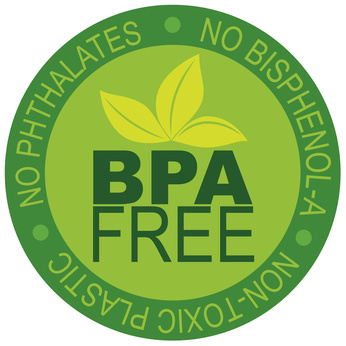
Unfortunately, we live in a hyper-chemical world, where synthetic products used for pesticides, to flavor our food, and produce the plastic our food is stored in may be cause for rising infertility rates. Before you panic, just know it’s virtually impossible to live in the 21st century without some level of toxic exposure. That being said, the more women and men education themselves about potential causes of infertility, the better able you will be to limit their presence in your life and your physical body.
The following are examples of common chemicals you should try to avoid if you are trying to get pregnant…and forever more!
Mercury. Unfortunately, inordinate amounts of mercury have ended up in our oceans, landfills, and groundwater. This is because it’s used in everything from batteries and paints, to florescent light bulbs and disinfectants. Mercury is also linked to higher rates of infertility and miscarriage. Men are susceptible as well. Men who have high levels of mercury toxicity have higher rates of impotence. Try to limit your exposure as much as possible by using low-VOC paints, solvents and household furnishings. Certain fish are more prone to high-levels of mercury than others due to contaminated ocean water. Consult this Healthy Fish List from the NRDC to learn more about before buying/consuming fish.
Bisphenol-A, or BPA. This one is tricky. BPA is used to manufacture plastic and plastic is all around us. We drink water out of plastic, store food in plastic and wrap just about every consumable good in some type of plastic-related packaging. The problem is that Bisphenol-A is an endocrine disruptor, which means it can interrupt your body’s natural hormone production. This can prevent eggs from maturing and releasing properly, and has been shown to increase the chances of a scenario called “spontaneous activation”, where eggs act as if they have been fertilized when they haven’t. Exposure to BPA can cause abnormalities in mature eggs, which can increase the risk of miscarriages or birth defects. The best way to avoid BPA exposure is to eat un-processed foods, minimize plastics in your household and make sure the plastics you do have are BPA-free and manufactured by reputable companies.
Pesticides. Pesticides kill pests so it doesn’t require a stretch of the imagination to see how they can have a harmful effect on humans. In addition to being linked to endometriosis and miscarriages, pesticides have also been linked to male infertility. Many of the chemicals that affect fertility are phytoestrogens, which mimic estrogen in the body. These increased levels of estrogen cause problems with normal reproductive hormonal function. With men, it can affect sperm count, motility, and can cause sperm to be abnormally shaped. Try to buy food products that are certified organic or are labeled, “pesticide and chemical free”. Shop at Farmer’s Markets or join your local CSA so you can have conversations with the people who grow your food, and learn more about their growing practices.
Non-Stick chemicals. We know you love your Teflon pans, but your future baby doesn’t! Teflon and other non-stick surfaces contain chemicals called perfluoroalkyl acids. These begin to leach into your food when the non-stick surfaces chip, crack, or peel away. Even small abrasions you can’t see can start leaking perfluroalkyl acids. The problem? These chemicals have been linked to both male and female infertility. And, sadly, in utero exposure to these chemicals has also been linked to male infertility, meaning if you expose your baby to these chemicals while you’re pregnant, he may have infertility issues down the road. This means get rid of your non-stick surfaces, but it also means you should stay away from restaurants and fast food establishments that use them in their kitchens.
What’s the positive take away from all of this? When you eliminate the common chemicals that may cause infertility, you are taking immediate steps towards a healthier future in general, for both you and your future children.
 Patient Portal
Patient Portal
